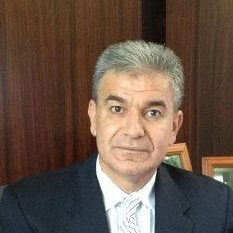 With the successful conclusion of the National Dialogue Conference (NDC), Yemen has demonstrated both to the region and the world that there is another way of dealing with conflict and grievances. One clear outcome of the NDC is a political transition based on dialogue rather than confrontation. The challenge now will be to convert this outcome into meaningful results for the people of Yemen.
With the successful conclusion of the National Dialogue Conference (NDC), Yemen has demonstrated both to the region and the world that there is another way of dealing with conflict and grievances. One clear outcome of the NDC is a political transition based on dialogue rather than confrontation. The challenge now will be to convert this outcome into meaningful results for the people of Yemen.
The current government, as well as future ones, will have to deal with hard economic problems going forward, and the successful implementation of the recommendations of the NDC will not be easy. It will require the drafting of many laws and regulations, capacity building at all levels of government (including the central, local, and the new regional governments), as well as financing. This requires continued support from the international community.
The success of the political process will be judged by the Yemeni people, based on whether it produces tangible results in terms of improved services, good governance, jobs, and a better security environment. If these results do not materialize quickly, whatever was achieved through dialogue will not be sustainable.
The next Yemeni government will not only be responsible for keeping the country running, but will also need to set an ambitious plan to restructure the state in accordance with the Federal Structure agreed upon in the National Dialogue. In addition, the government needs to undertake the necessary economic reforms to create the macroeconomic stability that will allow for poverty reduction, growth, and boosting shared prosperity.
These are major challenges for any government, even in optimal conditions. Therefore, over the next few years the government of Yemen will require the same kind of support, or greater, that it has received from the international community during the previous two years.
The first step following the conclusion of the NDC should be to focus on building new and modern institutions at the national, federal, and local levels. A new model of governance should be put in place that is geared towards more than developing physical infrastructure. It should be the foundation for improved service delivery to the entire population. The government should also free up resources currently absorbed by diesel subsidies. This should be accompanied by a clean-up of the state’s civil service, with the elimination of ghost workers and double dippers. The money saved as a result could be channeled toward serving the Yemeni population more effectively.
Once freed up, these resources could be used by the government to help the poor. For instance, part of the savings from the removal of diesel subsidies could be distributed directly to those most in need. This could be done by increasing payments to social welfare beneficiaries, who now receive only US$ 20 per month, which will never allow any of them to escape poverty. The savings could also be invested in improving infrastructure, services, and health and education.
Since jobs will only be created by the private sector, the government should pay special attention to reforming the business environment and establishing a true partnership with the private sector. The government should cut red tape and improve the rule of law with sustained efforts to reform the judiciary.
None of this can be achieved without a serious commitment to deal with corruption. While the appointment of the Anti-Corruption Board is a step in the right direction, it is not enough. The government should reinstate the Supreme National Authority for Combating Corruption (SNACC), and allow for the investigation of senior government officials with SNACC bringing cases to court if needed.
To bring the government closer to people, a true delegation of functions to local authorities needs to be done quickly, even before the approval of the new constitution. The government also needs to initiate a program to build the capacity of local authorities so that they are prepared to undertake their new functions. .
There is a huge challenge ahead. However, with a continued commitment to dialogue by all the parties involved backed by strong support from the international community, Yemen will be able to tackle the next stage in its peaceful transition.


Join the Conversation